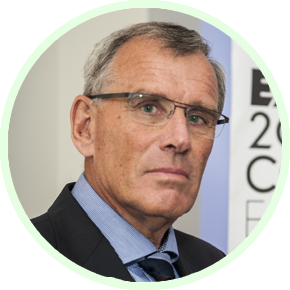An interview with Professor Klaus Bock, the ESOF2014 Champion


1. After Stockholm (2004), Munich (2006), Barcelona (2008), Turin (2010) and Dublin (2012), Copenhagen will be the next city to host the Euroscience forum – ESOF2014. What are your expectations for this special event in terms of the number of participants, quality of debates and the exhibition?
In Copenhagen, we will do our utmost to build on the strong ESOF legacy by delivering a forum and a festival that will put science on the agenda far beyond the scientific community. Our vision is “Science Building Bridges” which means that ESOF2014 will be a very inclusive event where citizens, students, industry and policymakers engage in and discuss research. We expect 4 500 delegates at the conference and 30 000 visitors at the Science in the City festival. There has been a huge demand for sessions in our scientific programme and in the other programmes. There has also been a huge demand for spaces in our festival and exhibition area, so I can guarantee there will be more than enough to choose from.
2. ESOF2014 will have eight scientific themes, recurrent across all of the programme tracks (healthy society, a revolution of the mind, global resource management, learning in the 21st century, green economy, material and virtual word, urbanisation, design and liveability, science, democracy and citizenship). How were these themes selected?
The ESOF2014 Programme Committee decided on the eight scientific themes with the purpose of creating an inspiring programme. The scientific programme presented these themes in order to raise societal issues that need to be addressed by science. In particular, the health sciences at large were designated a dedicated theme and focus was given to themes that invoke a broad discussion on sustainability and planetary resources.
3. Can you tell us about your role as ESOF champion?
It is a great privilege to be champion of ESOF2014. A key part of my role has been to work closely with the very competent committees that advise us on how best to organise the event. The ESOF concept is based on a very open and inclusive structure where external partners from the universities, industry and media, play a crucial role in shaping the event. It has been wonderful to experience how dedicated the partners and the friends of ESOF have been. It is their contributions that make this European science gathering such a great event. It simply would not be possible without the involvement of the partners, sponsors, supporting institutions and individuals who have volunteered just to be a part of it.
4. As the ESOF champion, you are responsible for the success of ESOF, both regarding the organisation and the impact of the event. How do you intend to ensure this success?
Right from the outset clear targets have been set in terms of organising the event and the quality of the programme. The ESOF2014 organising team, which is part of the Danish Ministry of Higher Education and Science, works with a range of professional partners to make sure that all guests at ESOF2014 will have a wonderful experience. Great efforts are being made to make sure we reach out to the very best speakers and contributors, and that both Danish and international media are on board to bring news and the discussions from ESOF2014 to a wide audience.
5. What are the benefits for Marie Curie Fellows or Alumni of participating in an event such as ESOF2014?
ESOF2014 is a fantastic networking opportunity. Delegates will experience a global showcase of the latest trends, developments and discussions across all the main scientific fields, and have the opportunity to meet the people behind the research. There will be a range of networking opportunities including a Horizon 2020 Matchmaking event and a Career Programme. Finally, we hope that delegates young and old will have a good time. Both our festival and the forum will take place in the Carlsberg City District, the former main production site of the Carlsberg brewery, an area which is now transforming into a new, vibrant urban district. We hope the venue will also inspire our guests to meet and socialise outside the conference rooms.
Read the greetings from Professor Klaus Bock, the ESOF2014 Champion